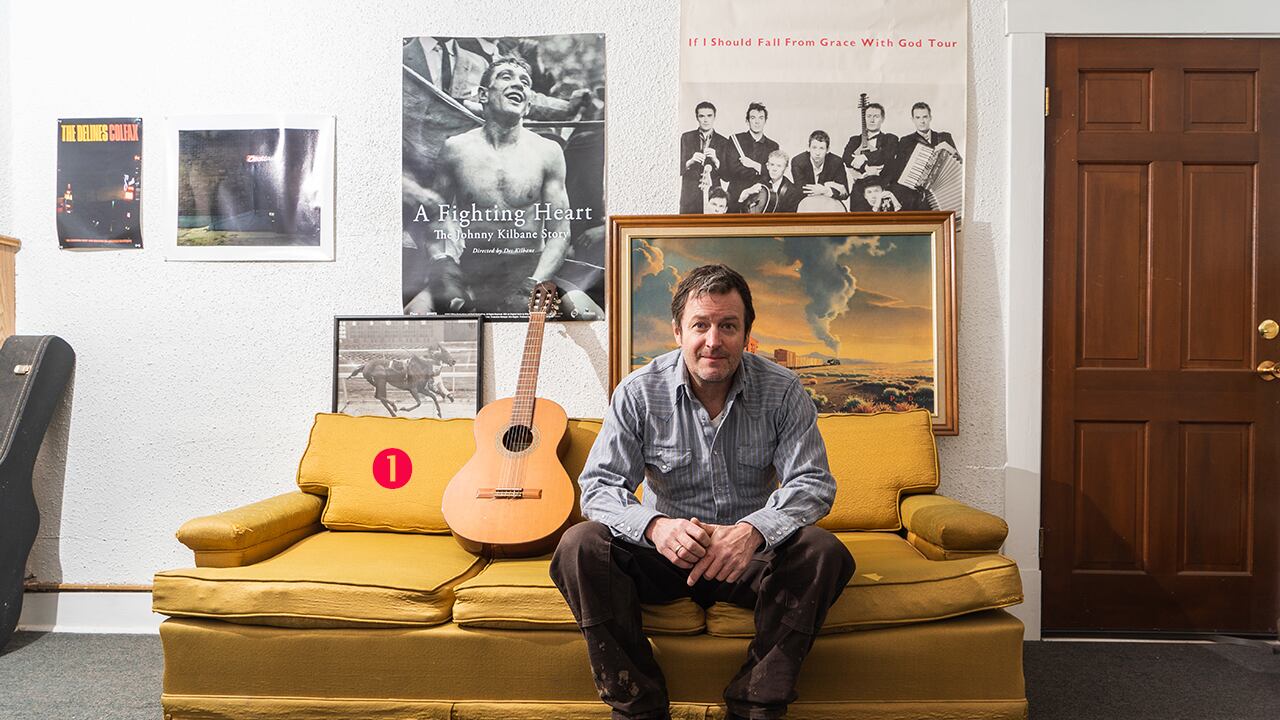Willy Vlautin has watched Portland change from his window.
For about 11 years, the author and musician has kept an office in St. Johns, a small, bedroom-sized space situated above a vegan cafe on North Lombard Street. When he's not on the road, Vlautin, 53, spends a few days a week here, driving down from his house in Scappoose to polish new tunes or plug away at a writing project. It's an ideal creative environment for an artist whose fascinations tend toward the midcentury—he says working there makes him feel like a private eye, like Humphrey Bogart in The Maltese Falcon.
It has also, over time, allowed him to witness a neighborhood in transition.
Once one of the city's dwindling blue-collar holdouts, St. Johns has in the past decade gone the way of the rest of Portland, and Vlautin has watched the transformation happen right on his block. He's seen vacated storefronts left empty for years. A tent city has popped up across the street, while a new apartment building is still in the process of being built next door. All of that was before COVID, but of course that's changed the view further—for one, he no longer gets to watch the old-timers going into Slim's for a drink first thing in the morning.
"I just started thinking about how St. Johns was such a working-class part of Portland, and all the houses were built for working-class people," he says with the distinctive twang of his hometown of Reno, Nev. "And now these houses are unaffordable for the working class."
In his upcoming novel, The Night Always Comes, Vlautin tells the story of one working-class Portland family in particular. It focuses on Lynette, a 30-year-old with bad credit working three jobs to scrape together the down payment to buy the rental home she shares with her mother and disabled brother before it can be sold out from under them.
It's a simple story, taking place across two desperate days and told in just 200 pages. But it's a slice of life reflective of a larger conversation Portland has been having with itself for two decades.
"It was just kind of my way of talking about gentrification and how neighborhoods change," Vlautin says. "Because I look out my window every day, and it's remarkable that the change is so dramatic and so fast. It's just kind of jaw-dropping."
1. Couch
"There's this really cool writer I know named Barry Gifford. He wrote Wild at Heart, if you've ever seen the movie. He's an old pal of mine, and he just said, 'You have to have a couch so you can take a nap. That's one thing a writer's got to have.'"

2. Desk
"I bought an old desk from this guy that used to sell furniture out of his garage. I don't know if he stole them or what. It's from the Hamilton Hotel—I don't even know where that is. Some kid scraped 'Slayer' into it. So had I had to buy it because of that."
3. "Marge"
"I wrote a book called The Motel Life, and one of the guys' dream girls was a gal named Marge. It's a woman sitting on a lawn chair from like the '20s, and it's an ad for a cruise line that goes to Hawaii. She looks like a schoolteacher, just really fucking cool and smart. So I've always had her. It gives me inspiration."
4. Photo of Boxer Ernie "Indian Red" Lopez
"He fought this guy and the guy knocked him out, and the [trainer] is holding him, begging him not to die. When Lopez woke up, he was so devastated he just kind of disappeared. He gave up on everything, he left his wife and three kids and hopped a train. He became, like, a hobo for the rest of his life. Eventually, one of his daughters had to find him to let him know that he made it into the Boxing Hall of Fame of California. The daughter hired a detective who liked boxing, and the guy tracked him down in a halfway house in Florida. I always look at that as the idea of, if you try so hard at something and you don't get it, like this guy, it's not a reason to give up."
5. Willie Nelson in Portland
"I'm a big Willie Nelson fan. I grew up in a pretty right-wing home. My mom was really straight that way and not a big fan of the arts, but for whatever reason she liked Willie Nelson. I could never understand why, because she didn't like long-haired hippies but she loved his voice. So Willie, to me, has always been the guy that can bridge the gap. This is an article from when he played at the Wishing Well in St. Johns—I can almost see it from my window."
6. Hurley's Used Auto Hamlet Sign
"They made a movie of one of my books called The Motel Life, and I became friends with the guy that did all the set design. There was a used car lot in the movie, and they gave me the sign. It's like 6 by 4 feet."
Puppet Maker Katy Strutz's Basement Studio Is Full of Miniature Monsters and Multiple Bins of Hair
At Home, Filmmaker Alberta Poon Is as Much of a "Mood-Slash-Light Psycho" as She Is on Set
Jazz Musician Ezra Weiss Has Gone From Leading Big Bands to Playing Alone in His Home

